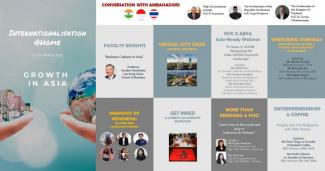
Fancy taking a virtual city tour of Jakarta? How about familiarising yourself with Asia’s business cultures? Would you like to have a conversation with an Ambassador (or three of them) from Singapore’s neighbouring countries? These were some of the activities and talks organised by the Singapore Management University (SMU) under its “Internationalisation@Home” initiative from 10 to 17 March 2021.
First introduced in Term 1 of Academic Year 2020/21, “Internationalisation@Home” started as an expansion of the University’s “Diverse-City” cultural event, with the objective of enabling students to gain global exposure even amidst an ongoing pandemic and the suspension of overseas programmes. This term, “Internationalisation@Home” was organised with the goal of broadening socio-economic perspectives. The programme carried the theme of ‘Growth in Asia’, which is one of SMU’s three priority areas, to elevate students’ awareness of recent and future developments of ASEAN member states, as well as China and India, particularly in the rapidly evolving areas of Innovation and Industry. Through the sharing of cross-cultural practices and business insights, “Internationalisation@Home” aimed to develop students’ global readiness by elevating their awareness of global issues and communities.
Conversation with Ambassadors
On 10 March, the High Commissioner of India P. Kumaran, the Ambassador of the Republic of Indonesia Suryo Pratomo and the Ambassador of the Kingdom of Thailand Dr. Suriya Chindawongse spoke about their ideas and perspectives during a virtual panel discussion titled “The Economic growth and transformation of Asia”. Moderated by Professor Giovanni Ko from SMU’s Office of Core Curriculum, the session was attended by more than 60 undergraduate and postgraduate students, as well as staff and faculty.
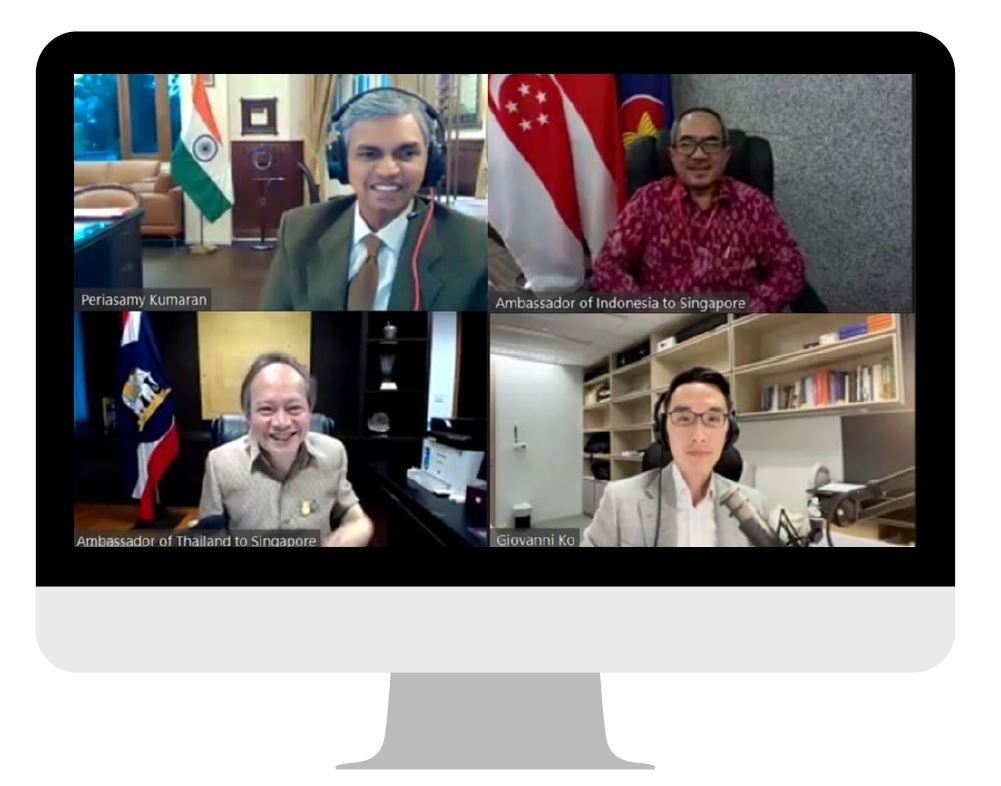
The ambassadors shared about their countries’ vision and strategies for long-term national economic reform, growth and transformation, including the major challenges their countries will face in the next decade. They outlined how regional and industrial partnerships in key growth sectors in their countries, in terms of infrastructure and digital connectivity, will advance economic stability and transformation in a sustainable manner.
“This dialogue [with ambassadors] provided invaluable insights, especially regarding the dynamic and robust nature of Southeast Asian economies, and how adopting a globalised outlook is beneficial for everyone involved,” said Joel Tan, a Year 1 undergraduate from SMU School of Social Sciences.
To listen to the conversation with ambassadors, tune in to the recording available on Mediacast.
Insights from faculty
Students and staff had an opportunity to learn from SMU Professor Gordon Perchthold during his talk on appreciating and navigating the diverse business cultures of Asia. Prof Perchthold’s talk covered the diverse landscape of Asia, how people in Asia think differently from those managing Western multinational companies and the characteristics of the different market economies across Asia.
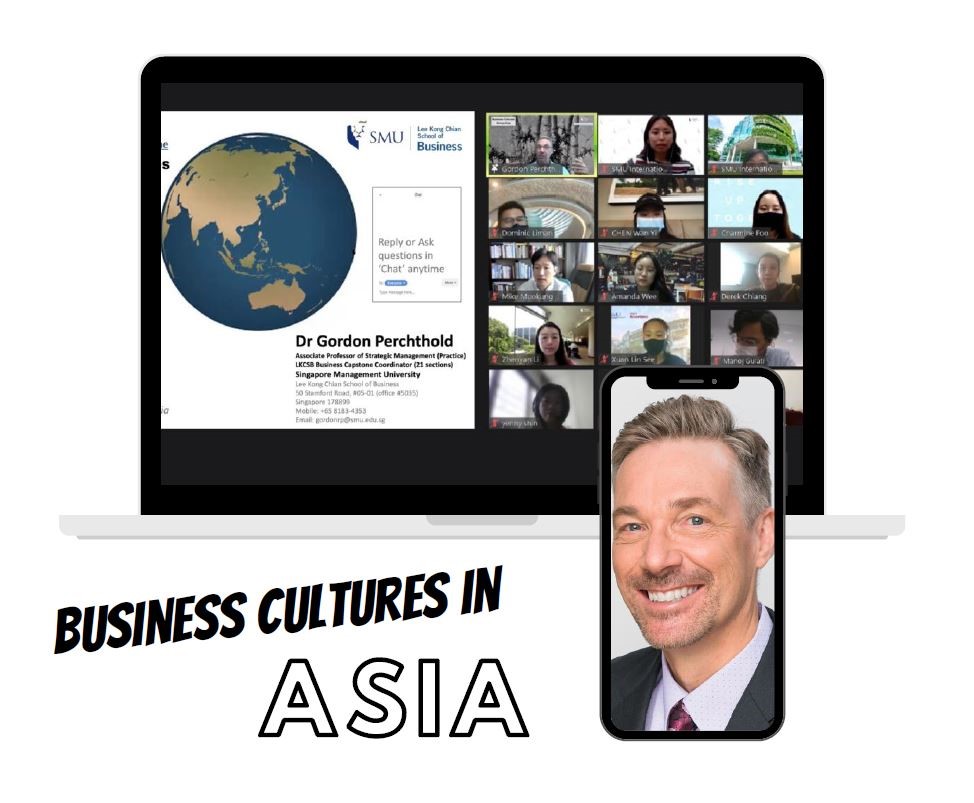
In another faculty sharing, Professor Wang Hua, Vice Dean of School of Foreign Studies and Center for Asia-Europe Studies and Professor Li Qian, Pro-Vice Dean of School of Economics and Finance shared in depth about the history, culture and economy of Xi’an, China. Both Chinese schools are part of Xi’an Jiaotong University (XJTU), a valued partner university of SMU.
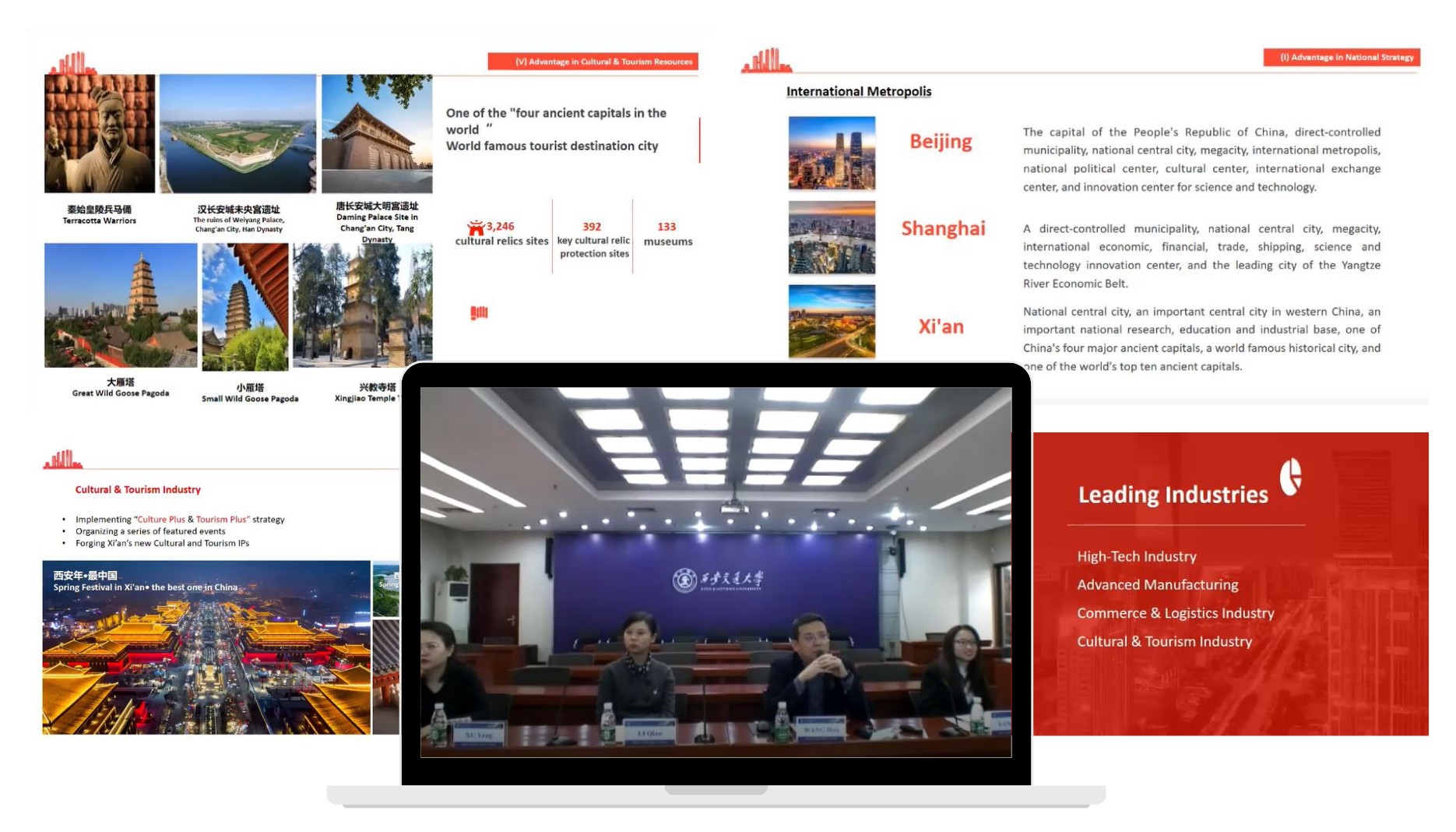
Peer sharing sessions by Virtual Student Exchange students and SMU Alumni
This edition of “Internationalisation@Home” included a culture and language sharing by SMU’s inaugural batch of Virtual Student Exchange (VSE) inbound students from Gadjah Mada University (UGM) in Indonesia. SMU alumni who have ventured overseas to Myanmar and the Philippines also spoke about their experiences living and working abroad in these two countries.
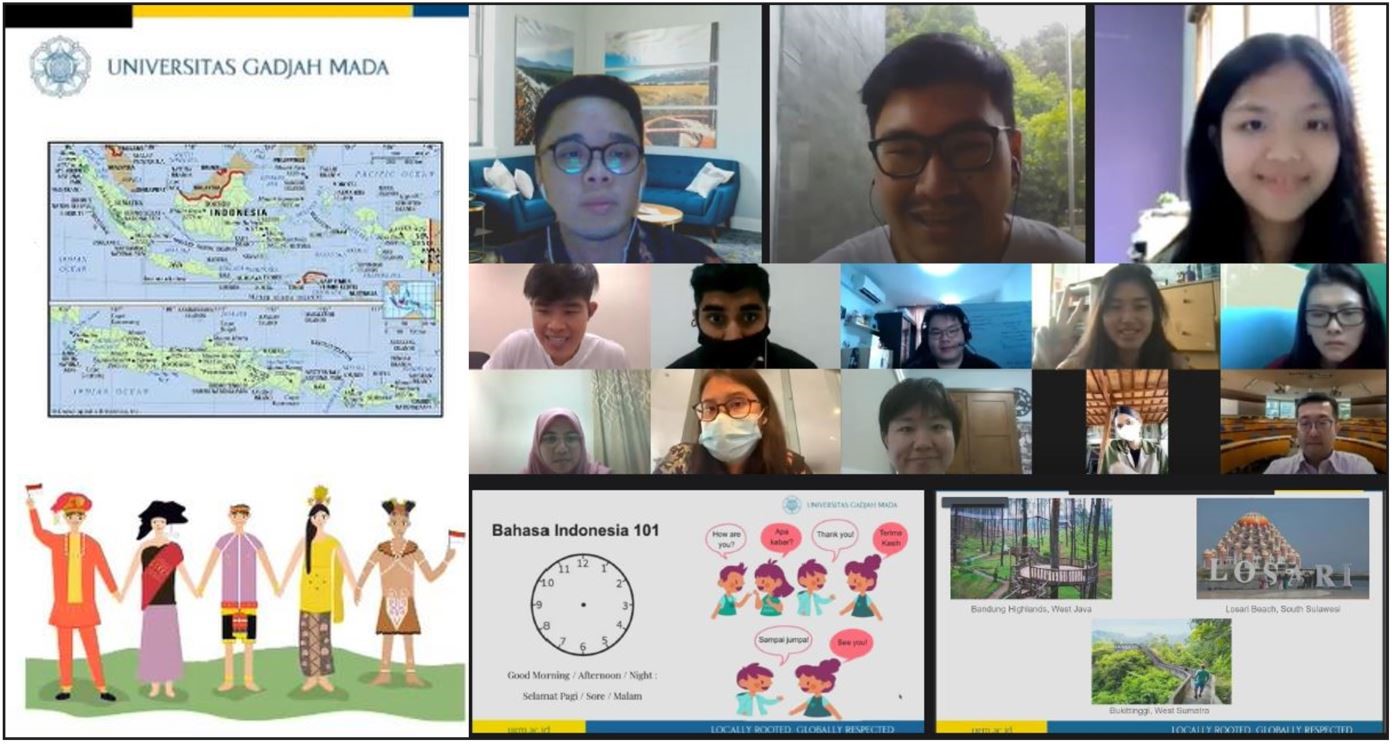
Rounding off the talks were some socio-cultural awareness and appreciation activities - a virtual tour of Jakarta and a calligraphy workshop - greatly enjoyed by those who participated. Post-event, participants have positive feedback on such “Internationalisation@Home” activities, indicating that they had gained new perspectives on societal and global issues during their stimulating discussions with peers, alumni, faculty and the Ambassadors. They appreciated the element of interactivity which in their view cannot be gained from reading about a different culture from a travel book or website.

The week-long “Internationalisation@Home” programme, which offered students the benefits of global exposure from the safety and comfort of Singapore, was organised and led by SMU International Office, in collaboration with the University’s Dato’ Kho Hui Meng Career Centre, Institute of Innovation and Entrepreneurship, Office of Core Curriculum and Prinsep Street Residences.